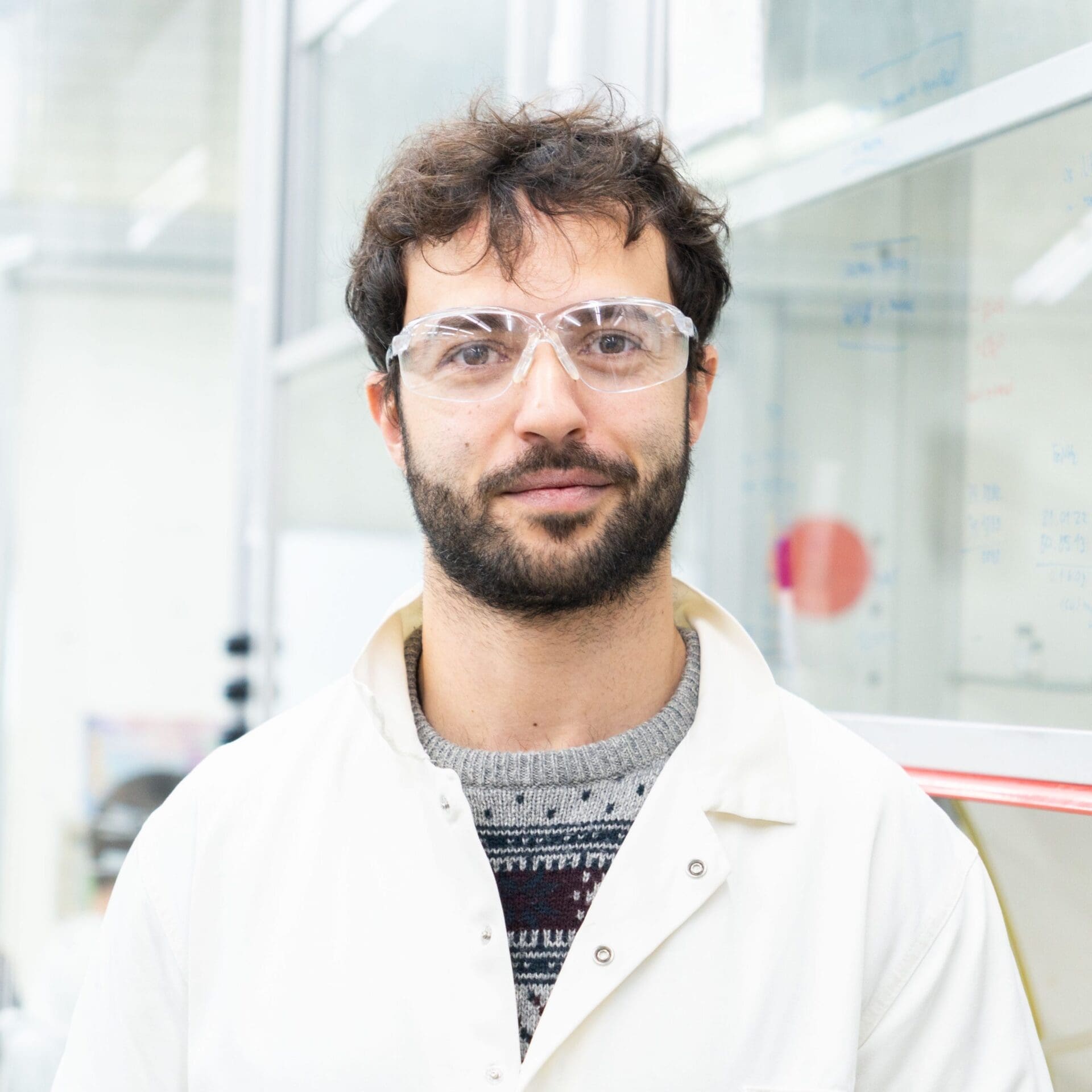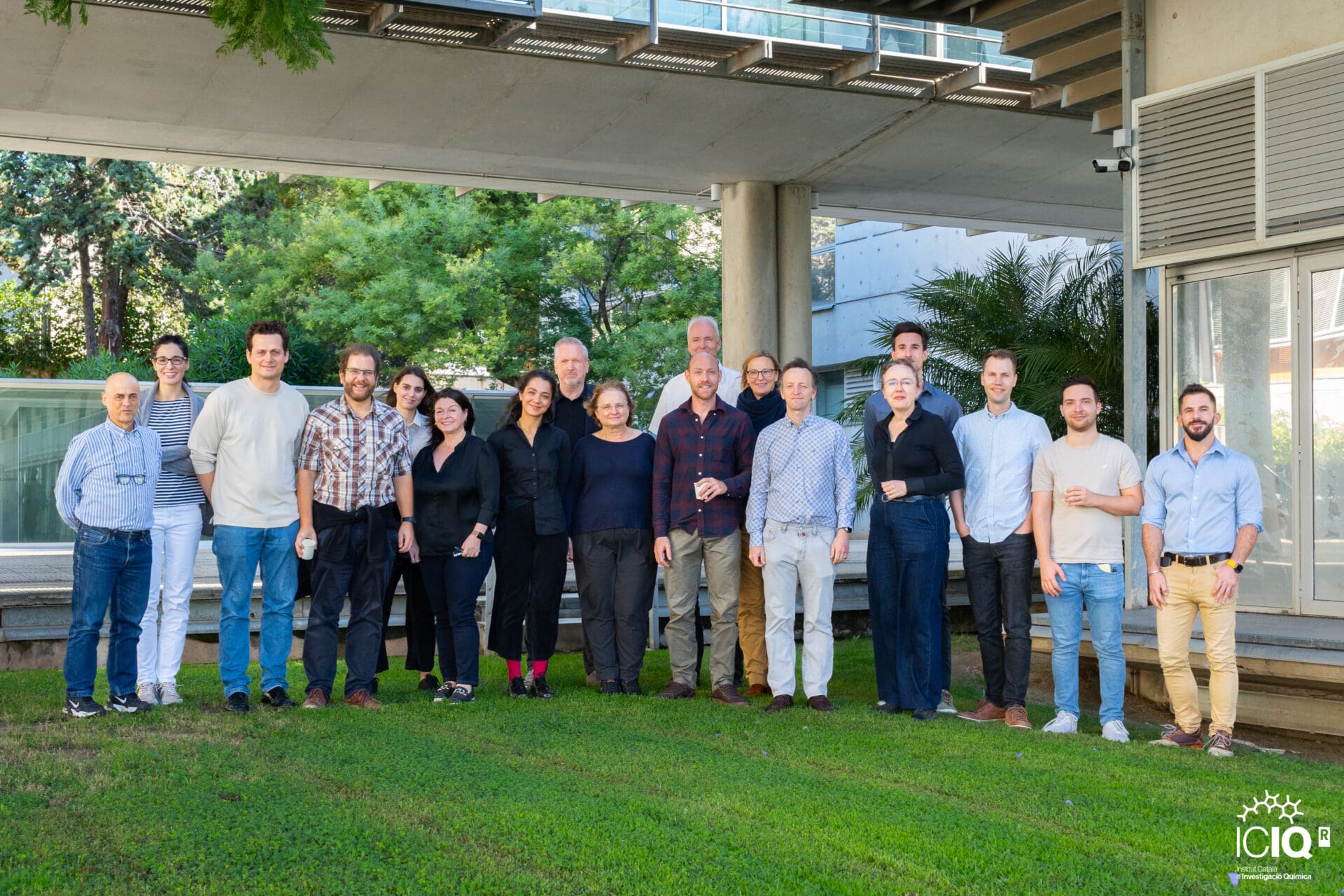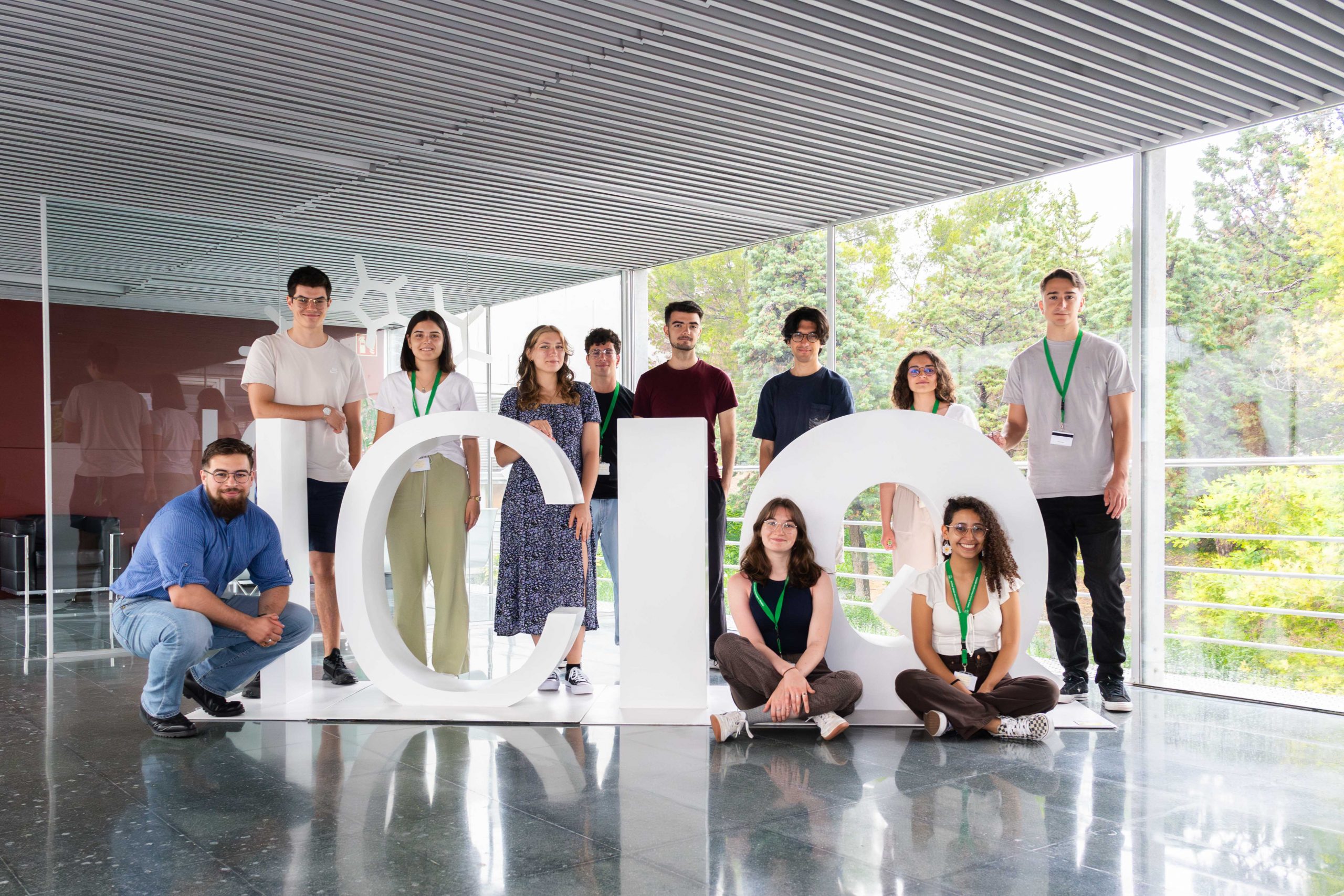Congratulazioni, Dr. Salati!
16th December 2024 – Martina Salati, a PhD student under the supervision of Prof. Antoni Llobet, has successfully defended her PhD thesis entitled “Molecular-based hybrid materials for artificial photosynthesis: Exploring new horizons in sustainable energy solutions” publicly on Friday, December 13th. The members of the evaluation committee were Prof. Dr. Olaf Rüdiger (Max Planck Institute for Chemical Energy Conversion, Deutschland), Prof. Dr. Carolina Gimbert (Universitat Autónoma Barcelona) and Prof. Dr. Serena Berardi (Universitá di Ferrara, Italy).
Martina Salati is from Parma, Italy. She earned her Bachelor’s degree in Chemistry at the University of Parma and then continued her studies at the University of Ferrara, where she completed a Master’s in Chemical Sciences. A quiet and introspective person, she enjoys reading, drawing, and engaging in artistic activities. However, she also values socializing and having fun with friends. Martina feels particularly grateful for the opportunity to work in an international environment like ICIQ. Another of her interests is global geopolitics, which she considers an important and relevant topic today. In her first year as a PhD student, she was awarded the “ayuda predoctoral” grant by the Spanish Ministerio de Ciencia e Innovación.
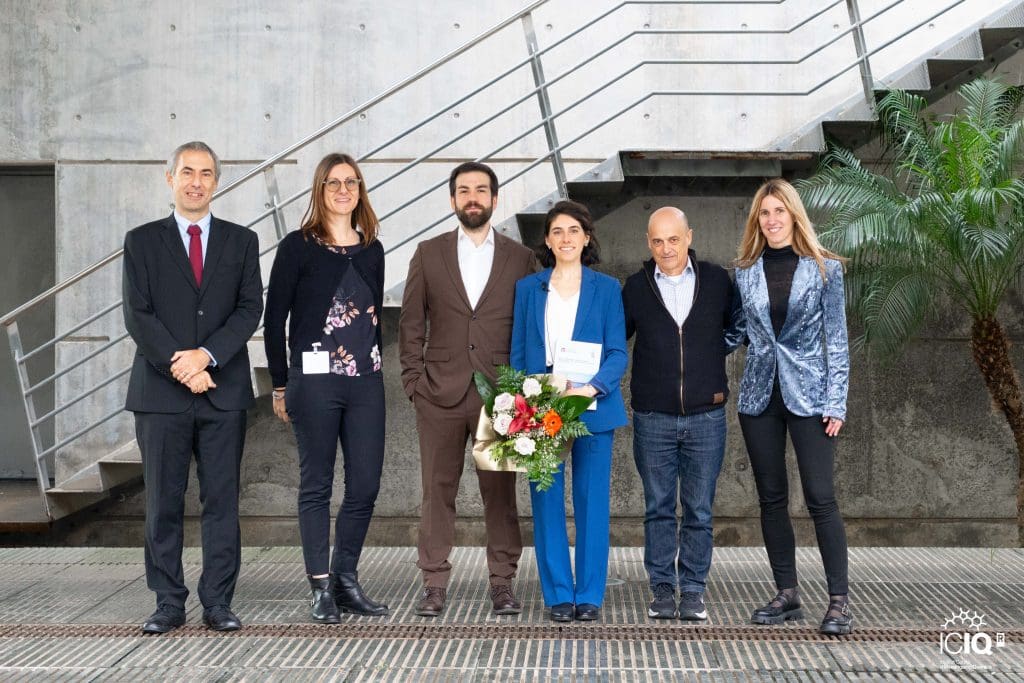
Why did you become a scientist?
I started learning chemistry because I was feeling really involved in the climate change topic, and after a while I understood that renewable energies were the field I wanted to work in, since they represent a valuable solution.
What is your thesis about?
My thesis is focused on the preparation of molecular hybrid materials for artificial photosynthesis. In brief, I tried to connect molecular catalysts, already reported for water oxidation and CO2 reduction, with organic-based semiconductors to obtain solar fuels in aqueous and neutral conditions. The final challenge is the creation of photosynthetic devices that only use affordable components.
What triggered your interest for the subject of your thesis?
The use of organic polymers as semiconductors. The mostly used ones are generally metal-based and they are pretty robust and stable, but they need expensive treatments for their production or they just work in harsh conditions. Instead, organic materials can be made of common elements, like carbon and nitrogen, and they normally undergo cost-effective processes. And in the last years, lots of research has been done to push studies and applications with these materials.
What applications can your thesis have in the future?
The generation of solar fuels, like H2 or CH4, C2H6 and other rich-products, with the help of solar energy.
What will you miss the most from ICIQ?
My colleagues. Working in an international environment has been really stimulating, full of experiences and good memories.
What do you wish you had known at the beginning of your PhD?
How to be more organized and plan better my daily work. But that’s why we had trainings like “How to succeed in your PhD”, to remind us that it’s always a good moment to learn.
What advice do you have for someone who’s starting their PhD now?
Be curious and not arrogant. There is so much to learn every day!
If you were a piece of lab equipment, what would you be?
I would be a solar simulator, since the sun is essential for life, it easily brightens and warms up our days, and it makes everything shiny.
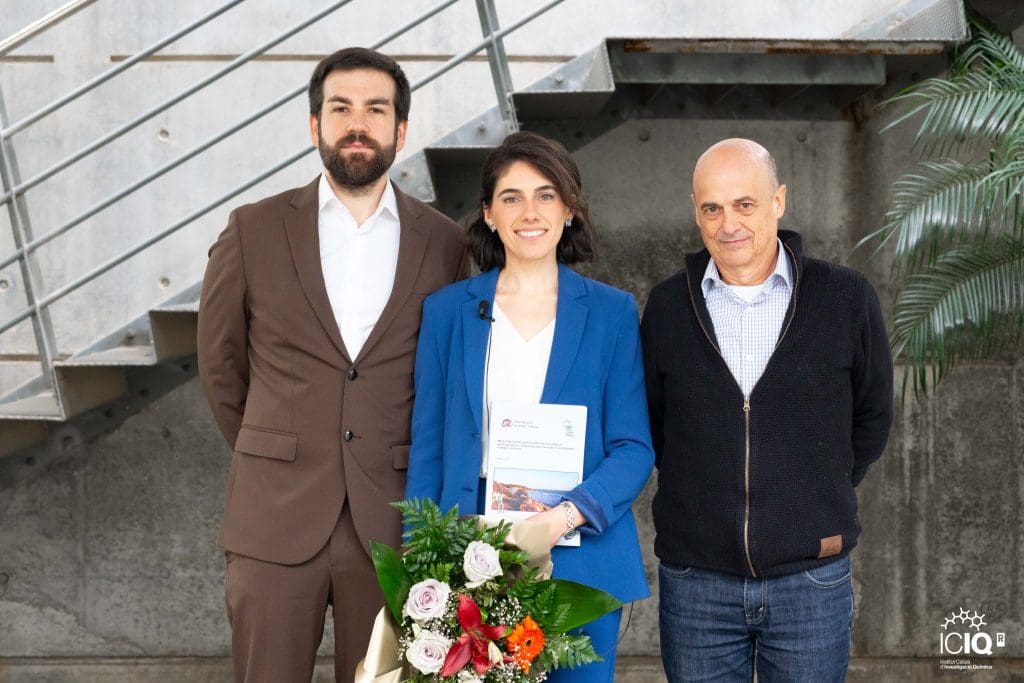
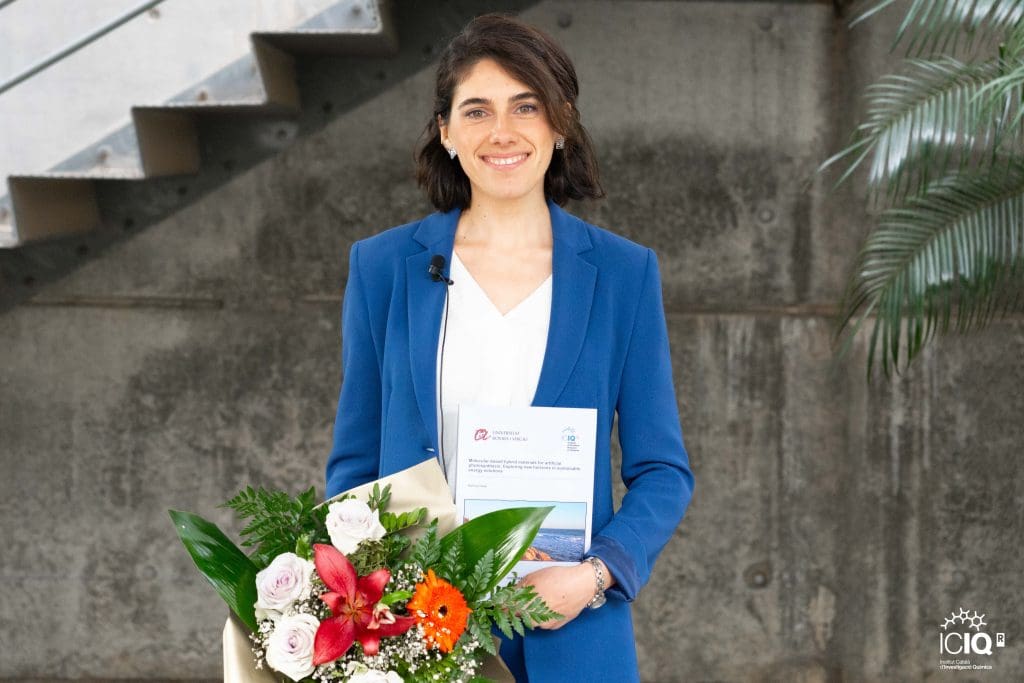
Related news

Let's create a brighter future
Join our team to work with renowned researchers, tackle groundbreaking
projects and contribute to meaningful scientific advancements






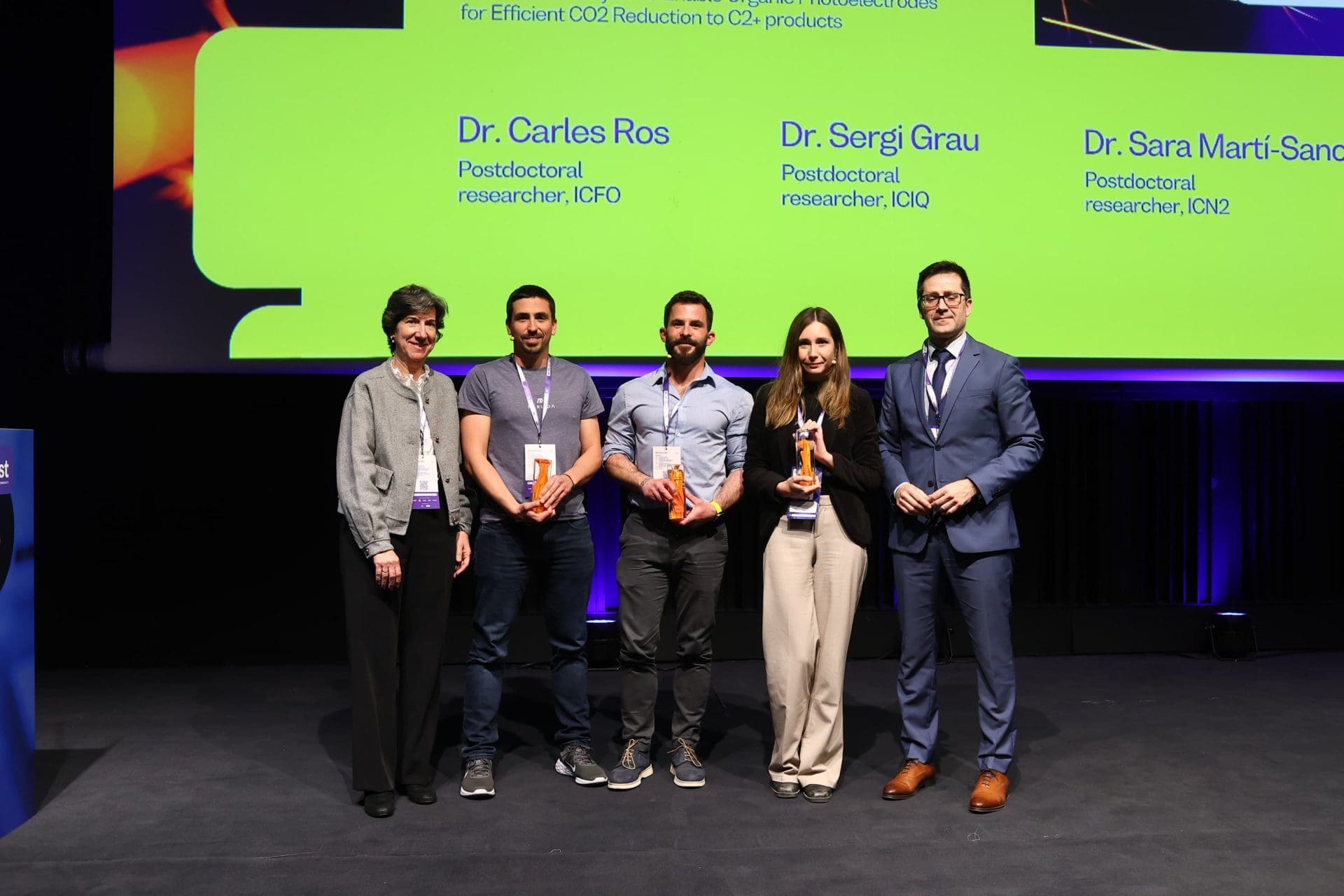
 21-02-2025
21-02-2025 